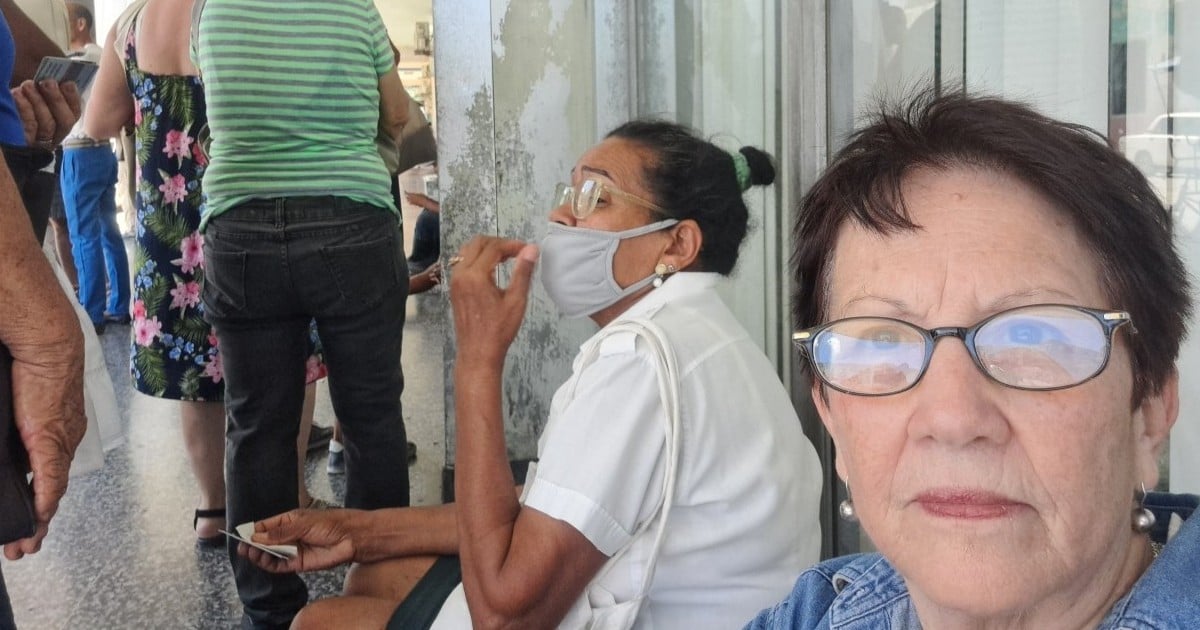Retired Cuban journalist Iraida Calzadilla took to Facebook to voice the ongoing struggle she faces every month in collecting her pension in Cuba. "As usual, I'm left waiting at the doorstep of any bank, this time at Zanja, to receive whatever portion they decide to give me of my pension because they never provide the full amount. Every day is more disheartening. This is the harsh reality," she expressed.
Her account did not go unnoticed. Fellow journalist Yirmara Torres Hernández expressed her sympathy for Iraida's plight, a renowned educator who has mentored numerous generations of journalists. "And here is Professor Iraida... she narrates it herself in the post she shared. Like many retirees, she endures an ordeal to get her pension. And this is in Havana. Imagine the rest of the island! Oh, my Cuba. How you hurt!" Torres lamented.
A Widespread Crisis
The struggle faced by retirees in accessing their pensions is neither new nor limited to Havana. In May, independent journalist Yosmany Mayeta Labrada shared images depicting elderly individuals sleeping on porches and sidewalks in Santiago de Cuba's historic center, trying to claim their checks amidst a severe cash shortage and the collapse of the banking system.
The photos, taken on Enramadas Street, showed elderly people resting just steps away from iconic spots like La Bodeguita del Medio and Parque Céspedes. Long queues were also documented in front of ATMs at intersections such as Enramadas with Corona and Padre Pico. This phenomenon, far from isolated, has repeated across various Cuban cities. According to data collected by CiberCuba, over 39% of pensioners receive less than 1,528 CUP monthly.
"There is Money," But No Access
Although the president of the Central Bank of Cuba publicly claimed that "there is money," real-life experiences tell a different story. On the streets, retirees encounter out-of-service ATMs, endless lines, and individuals profiting from others' desperation, with no assurance of health and safety for the elderly.
This crisis is compounded by the deteriorating elderly care system, rampant inflation, and the lack of concrete solutions from authorities. Last December, as the year drew to a close, dozens of elderly people in Santiago de Cuba faced the nightmare again: long queues at banks and post offices, disorganization, and inadequate conditions for collecting a pension that falls short of covering basic needs. This ordeal has become a constant amid one of the nation's worst economic crises.
Failed Banking Reforms
The situation worsened when the government mandated the banking of salaries and pensions. This system, intended as a modernization step, collapsed due to inadequate infrastructure and insufficient ATMs. In Matanzas, for instance, a chaotic scene unfolded on December 11 at the Jovellanos Bank: crowding, confrontations between customers and employees, and widespread frustration over inaccessible funds.
What Iraida Calzadilla endures, which she terms her "real reality," reflects a structural crisis hitting the most vulnerable particularly hard: the elderly who, after decades of labor, must now battle each month to obtain a pension that often fails to allow them to live with dignity.
Understanding the Pension Crisis in Cuba
What challenges do Cuban retirees face in accessing their pensions?
Cuban retirees often encounter numerous hurdles, including inoperative ATMs, long lines, and partial pension payouts. The lack of infrastructure and cash shortages exacerbate these issues, making it difficult for them to access their full pension.
How has the mandatory banking system affected pension collection?
The mandatory banking system, intended for modernization, has proven ineffective due to inadequate infrastructure and insufficient ATM availability, leading to chaos and frustration among retirees trying to access their pensions.
